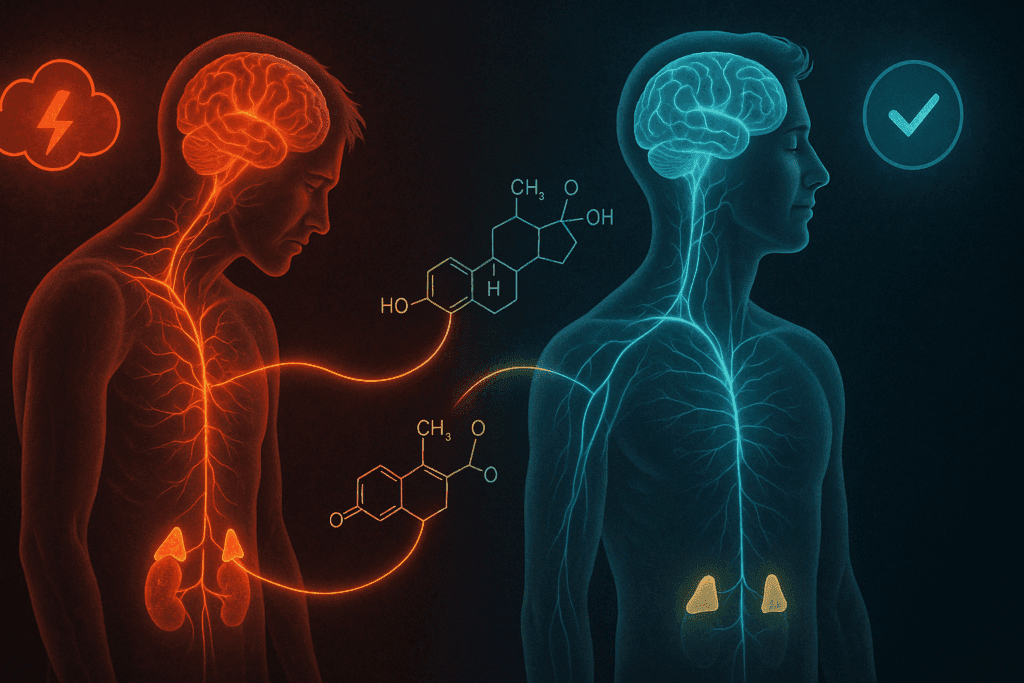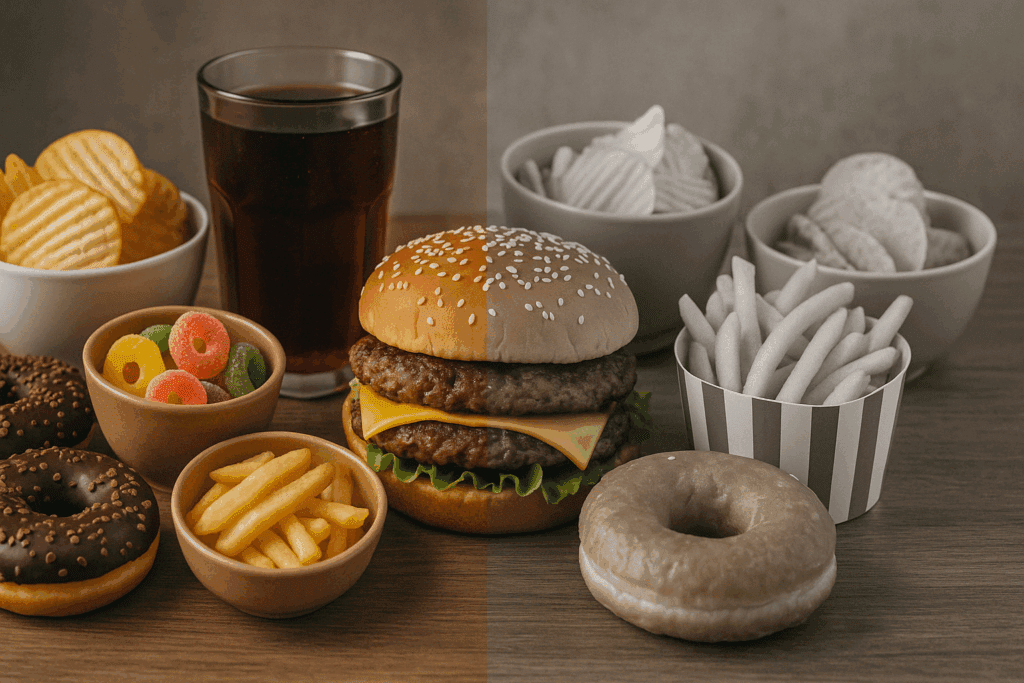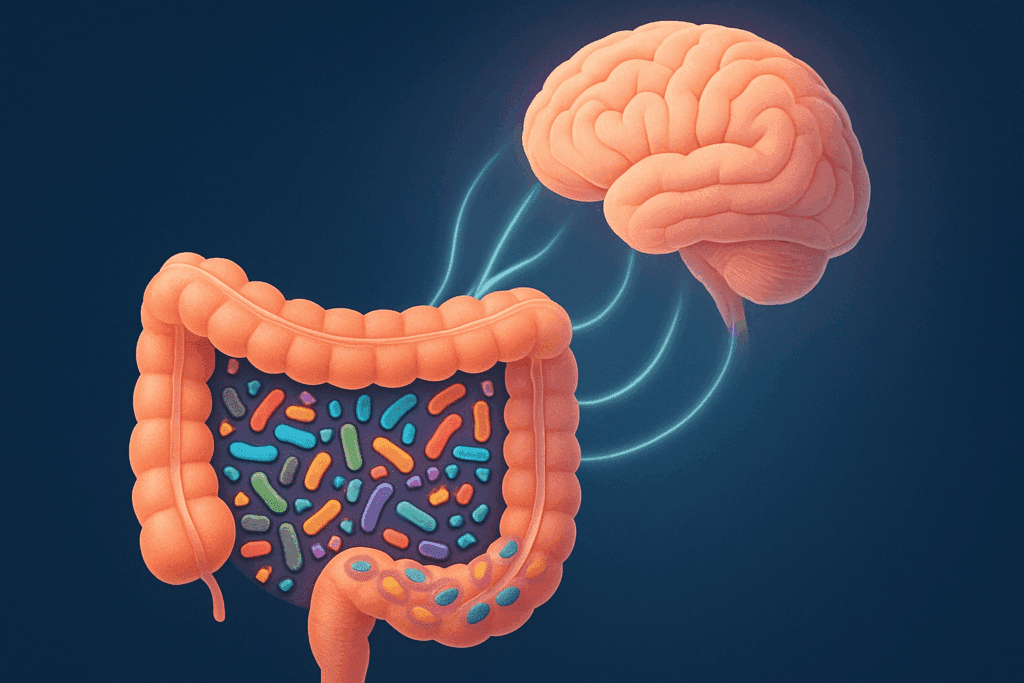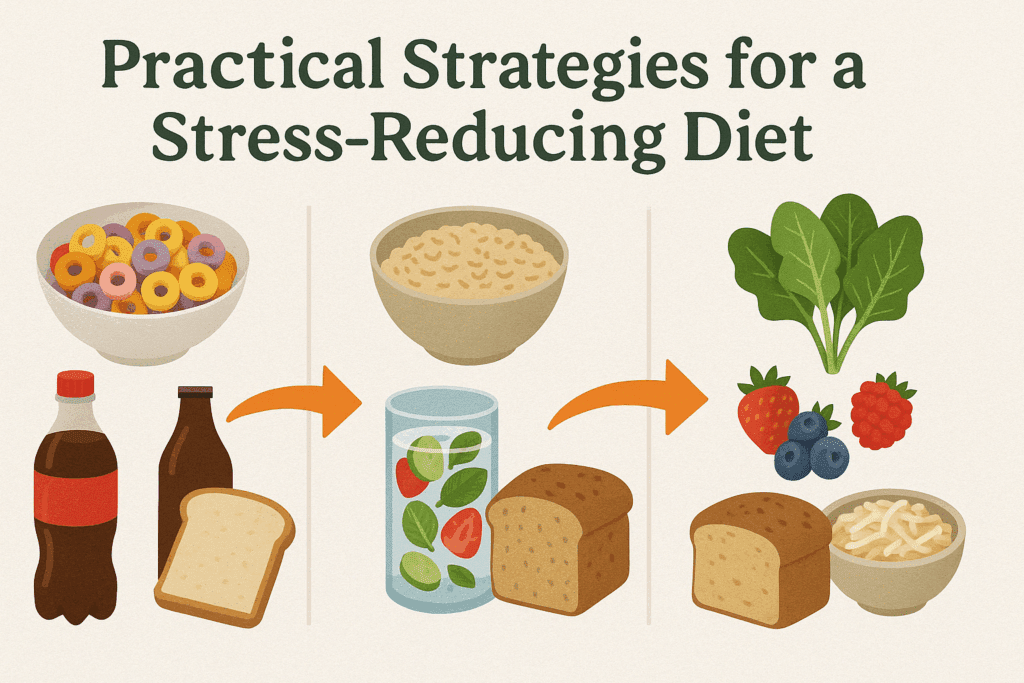In the pursuit of mental clarity and physical wellness, one of the most underestimated aspects of health is the relationship between food and stress. While much of the conversation around nutrition centers on weight management, cardiovascular health, or digestive balance, the impact of dietary choices on our stress response and hormonal regulation often remains an afterthought. As research continues to evolve, there is growing recognition of how certain foods can either soothe the nervous system or exacerbate the body’s stress response by increasing levels of cortisol, the primary stress hormone. Simultaneously, understanding the concept of stress definition foods—those that help the body adapt to or recover from stress—is essential in crafting a holistic approach to wellness. This article explores the biological mechanisms behind cortisol, outlines the dietary triggers that may elevate it, and presents food choices that can support a balanced mood and a healthier lifestyle overall.
You may also like: How to Stop Emotional Eating and Regain Control: Mindful Nutrition Strategies That Support a Healthier Lifestyle

Understanding Cortisol and the Stress Response
Cortisol is a steroid hormone produced by the adrenal glands in response to stress. It plays a critical role in a variety of bodily functions, including metabolism, immune response, and the regulation of blood sugar. While its release is a natural and adaptive mechanism designed to protect us during short-term stress, problems arise when cortisol levels remain elevated for prolonged periods. Chronic stress can result in an overproduction of cortisol, leading to negative health outcomes such as anxiety, weight gain, sleep disturbances, high blood pressure, and impaired cognitive function. Food is not just fuel; it acts as a powerful signaling mechanism that can influence the body’s hormonal environment. What we eat can either contribute to the chronic elevation of cortisol or help bring it back into balance.
The Role of Diet in Hormonal Regulation
Our diets shape far more than our waistlines. Nutrients interact directly with hormonal systems to either stabilize or dysregulate them. When discussing cortisol triggering food, it is important to distinguish between foods that have a direct biochemical impact on cortisol secretion and those that do so indirectly through their effects on blood sugar, inflammation, or gut health. Refined carbohydrates, high-glycemic foods, excessive caffeine, and alcohol are among the most common dietary contributors to elevated cortisol. They spike insulin, lead to rapid energy crashes, and create an inflammatory environment in the body, all of which can stimulate additional cortisol production. On the flip side, foods rich in antioxidants, complex carbohydrates, magnesium, and adaptogenic properties can help reduce the stress response and support adrenal function.

Identifying Cortisol Triggering Food
To understand what constitutes cortisol triggering food, we must look beyond simplistic labels like “junk food” or “unhealthy” and delve into their physiological effects. Highly processed snacks, sugary breakfast cereals, fried foods, and artificially sweetened beverages are frequent culprits. These items not only lack nutritional value but can also disrupt blood sugar regulation, which in turn prompts cortisol secretion to stabilize glucose levels. Caffeine, particularly in large amounts or on an empty stomach, also acts as a stimulant that elevates cortisol. For individuals already experiencing chronic stress, habitual consumption of such stimulants can exacerbate symptoms like anxiety and insomnia. Additionally, alcohol, though often used socially to relax, can disrupt sleep architecture and interfere with adrenal function, leading to elevated cortisol the following day.
The Impact of Blood Sugar and Insulin
Blood sugar regulation is intimately tied to cortisol production. When blood glucose drops—either due to a skipped meal or a crash following high-glycemic intake—the adrenal glands respond by releasing cortisol to mobilize stored energy. This compensatory response is essential in acute scenarios but becomes problematic when blood sugar fluctuations occur frequently. Diets high in refined sugars and lacking in fiber or protein contribute to this cycle of dysregulation. Thus, cortisol triggering food often includes pastries, white bread, sweetened beverages, and other simple carbohydrates that provoke insulin spikes followed by sharp drops in blood sugar. Managing glycemic load through the inclusion of whole grains, legumes, and fiber-rich vegetables can help maintain energy levels and prevent unnecessary cortisol release.

Caffeine, Alcohol, and Their Hidden Stress Load
While caffeine is celebrated for its ability to boost alertness and productivity, its relationship with stress is more complex. It stimulates the central nervous system and prompts the adrenal glands to release more cortisol. For individuals already under pressure or with adrenal fatigue, this added hormonal load can have counterproductive effects. Similarly, alcohol interferes with the body’s ability to enter restorative sleep stages, even when consumed in moderate amounts. It also affects neurotransmitter balance, particularly the production of serotonin and dopamine, which are crucial for mood regulation. When alcohol is consumed frequently, especially in an attempt to unwind, it can paradoxically increase stress in the long term by contributing to hormonal imbalances and disrupted circadian rhythms.
Stress Definition Foods: Nourishing the Body and Mind
In contrast to foods that heighten the stress response, there exists a category of dietary choices known as stress definition foods—those that nourish the body’s adaptive systems and help maintain homeostasis during periods of stress. These include nutrient-dense whole foods that are rich in B vitamins, magnesium, omega-3 fatty acids, antioxidants, and amino acids. Leafy greens, fatty fish, legumes, avocados, nuts, seeds, and fermented foods all fall within this category. They provide the building blocks for neurotransmitter synthesis, support the gut-brain axis, and reduce inflammation, collectively buffering the body against the adverse effects of chronic stress.

The Science Behind Adaptogenic Foods
Some stress definition foods are categorized as adaptogens—natural substances that help the body adapt to stress and exert a normalizing effect on bodily processes. Examples include ashwagandha, rhodiola, ginseng, and holy basil. These botanicals have been studied for their ability to modulate the hypothalamic-pituitary-adrenal (HPA) axis, the central stress response system in the body. By supporting adrenal function and improving resilience, adaptogenic herbs can play a complementary role in nutritional strategies aimed at reducing stress. Incorporating adaptogens into meals through teas, smoothies, or supplements may be particularly beneficial for individuals in high-pressure environments or those recovering from burnout.

Gut Health and the Microbiome-Stress Connection
Emerging research continues to highlight the crucial role of the gut microbiome in regulating mood and stress levels. The gut and brain communicate via the vagus nerve, and this bidirectional system—often referred to as the gut-brain axis—plays a key role in emotional health. A diverse and well-balanced microbiome supports the production of neurotransmitters such as serotonin and GABA, both of which have calming effects. Stress definition foods that support gut health include fermented options like yogurt, kefir, sauerkraut, and miso, as well as prebiotic-rich foods like garlic, onions, leeks, and asparagus. By supporting gut integrity and microbial diversity, these foods help modulate the stress response and reduce systemic inflammation that may otherwise contribute to cortisol elevation.
The Role of Magnesium and B Vitamins
Two micronutrients that stand out in their ability to counteract the effects of stress are magnesium and B vitamins. Magnesium plays a central role in nervous system regulation, muscle relaxation, and the synthesis of calming neurotransmitters. It is often depleted during periods of prolonged stress, making dietary replenishment essential. Sources include leafy greens, pumpkin seeds, almonds, and whole grains. B vitamins, particularly B6, B9 (folate), and B12, are necessary for energy metabolism and mental clarity. They aid in the conversion of food into usable energy and are involved in the production of serotonin and dopamine. Ensuring adequate intake of these vitamins through diet or supplementation can help buffer the physiological impact of stress.

Practical Strategies for a Stress-Reducing Diet
Transitioning to a diet that minimizes cortisol triggering food and emphasizes stress definition foods requires intentionality but does not have to be overwhelming. Begin by identifying and gradually reducing foods that spike blood sugar or provide little nutritional value. Swap sugary breakfast cereals for oatmeal topped with berries and nuts. Replace white bread with whole grain alternatives, and limit caffeine to the early part of the day, preferably paired with a balanced meal. Incorporate more meals that combine complex carbohydrates, healthy fats, and protein, as this combination slows digestion and promotes stable blood sugar. Adding fermented foods, herbal teas, and adaptogenic supplements can further enhance stress resilience. Hydration also plays a subtle but vital role; even mild dehydration can elevate cortisol, so consistent fluid intake is essential.
Mindful Eating as a Complementary Practice
Beyond the nutritional composition of meals, the way in which food is consumed also influences stress levels. Mindful eating—the practice of eating slowly, without distraction, and with awareness of taste, texture, and satiety—has been shown to lower cortisol levels and promote digestive efficiency. This practice encourages individuals to tune into their body’s signals and fosters a more balanced relationship with food. Eating in a calm environment, chewing thoroughly, and pausing between bites can all enhance parasympathetic nervous system activation, which counters the stress response. While often overlooked, these behavioral strategies are just as important as nutrient content in supporting a calmer lifestyle.
Avoiding Extremes and Embracing Balance
In efforts to eat well and reduce stress, it’s important not to fall into the trap of dietary perfectionism, which can become a stressor in itself. While minimizing cortisol triggering food is beneficial, occasional indulgence should be viewed within the broader context of balance and flexibility. Labeling foods as “good” or “bad” can create unnecessary guilt and anxiety around eating, which is counterproductive to stress reduction. Instead, adopting an inclusive approach that prioritizes nutrient density while allowing room for pleasure and social connection through food is more sustainable. The goal is not strict avoidance but conscious choice-making rooted in self-awareness and self-care.
Creating Sustainable, Personalized Nutrition Plans
Every individual responds differently to dietary stimuli, making personalization a key component of effective stress management through nutrition. Genetic predispositions, existing medical conditions, lifestyle demands, and cultural preferences all shape what works best for each person. Working with a registered dietitian, integrative nutritionist, or healthcare provider can provide tailored guidance that respects these variables. Food sensitivity testing, nutrient panels, and metabolic assessments can offer additional insights to refine dietary strategies. Over time, the goal is to cultivate intuitive eating patterns that align with one’s unique physiology and support both mental and physical well-being.
Building a Lifestyle of Resilience
Ultimately, food is just one component of a multifaceted approach to managing stress. While avoiding cortisol triggering food and embracing stress definition foods can have profound physiological effects, these choices gain even more power when integrated with other wellness practices. Regular physical activity, adequate sleep, mindfulness meditation, social support, and meaningful engagement in life all contribute to a foundation of resilience. Nutrition provides the fuel and biochemical tools, but lifestyle habits determine how effectively those tools are used. Thus, the most effective strategies for reducing stress and supporting health involve a holistic perspective that honors the interplay between mind, body, and environment.
Frequently Asked Questions (FAQ)
1. Can eating too late at night affect cortisol levels and contribute to stress?
Yes, eating late at night—especially high-sugar or high-fat meals—can influence cortisol production and disrupt your natural circadian rhythm. Cortisol, a hormone closely tied to the body’s sleep-wake cycle, typically declines in the evening. Consuming cortisol triggering food during late-night hours can confuse this cycle, potentially increasing stress levels and impairing sleep quality. Over time, this disruption may contribute to metabolic imbalances, increased anxiety, and even weight gain. While occasional late-night snacks aren’t harmful in moderation, it’s best to avoid stress definition foods that spike blood sugar or stimulate digestion close to bedtime.
2. Are there any overlooked lifestyle factors that make stress definition foods more harmful?
Absolutely. While stress definition foods like ultra-processed snacks or caffeine-laden beverages can have physiological effects on their own, their impact becomes more harmful when paired with poor lifestyle habits. For instance, individuals who are chronically sleep-deprived, sedentary, or exposed to frequent digital overstimulation may be more sensitive to the effects of cortisol triggering food. In these cases, the body’s resilience to stressors weakens, and cortisol regulation becomes more erratic. Emotional eating in response to these factors can also create a cycle of dependency on high-stress foods, intensifying their negative impact.
3. Can stress definition foods influence mental performance and cognitive clarity?
Yes, the connection between stress definition foods and cognitive function is becoming more recognized in nutritional psychiatry. Diets high in processed carbohydrates, trans fats, and additives can impair memory, concentration, and emotional regulation by fueling neuroinflammation. Consuming cortisol triggering food regularly may reduce the brain’s ability to respond adaptively to stress, potentially increasing susceptibility to burnout or brain fog. On the other hand, whole foods rich in antioxidants, omega-3s, and magnesium can help buffer the cognitive effects of stress. This emphasizes the importance of a nutrient-dense diet for maintaining sharp mental performance under pressure.
4. Is it possible for someone to crave cortisol triggering food during stressful periods, and why?
Yes, and the reasons are both biological and psychological. When under stress, the body releases cortisol, which can increase appetite and intensify cravings for salty, sugary, or fatty foods—many of which qualify as cortisol triggering food. These items offer a quick dopamine reward, which momentarily alleviates feelings of distress. However, this creates a feedback loop where stress drives cravings for stress definition foods, and those foods, in turn, worsen the body’s stress response. Learning to recognize these cravings as emotional cues rather than genuine hunger can help people make more mindful, nourishing choices.
5. Are there any cultural or social factors that influence our exposure to stress definition foods?
Yes, culture and environment play a pivotal role in shaping food choices, especially during high-stress periods. In many Western societies, fast food and convenience items are marketed as quick fixes for busy, overstimulated lives—many of which qualify as stress definition foods. Social settings, such as workplace environments or celebratory gatherings, often promote the consumption of cortisol triggering food, subtly reinforcing their normalization. Additionally, media portrayals of food as comfort or reward further blur the line between emotional fulfillment and nutritional value. Understanding these social influences can help individuals approach stress-related eating with greater awareness and intentionality.
6. How can someone identify hidden sources of cortisol triggering food in their diet?
Hidden cortisol triggering food can lurk in many packaged or restaurant items that may appear harmless at first glance. For example, many salad dressings, sauces, energy bars, and “low-fat” snacks contain added sugars, refined oils, or synthetic preservatives—all of which can disrupt cortisol regulation when consumed regularly. Reading ingredient labels and recognizing terms like high-fructose corn syrup, hydrogenated oils, and monosodium glutamate (MSG) can help individuals become more discerning. Beyond the obvious culprits, it’s important to assess how a food makes you feel afterward—if it leaves you feeling jittery, bloated, or fatigued, it may be impacting your cortisol balance more than you realize.
7. Can intermittent fasting or time-restricted eating help reduce the impact of cortisol triggering food?
When done mindfully and with proper guidance, intermittent fasting can support more stable cortisol patterns and reduce dependency on stress definition foods. By aligning eating windows with circadian rhythms, the body may experience reduced inflammation, improved insulin sensitivity, and more regulated cortisol release. However, if not implemented properly, fasting can backfire—especially if individuals break their fasts with cortisol triggering food, which spikes blood sugar and counteracts hormonal benefits. A balanced approach that emphasizes nutrient-dense meals during eating windows can make intermittent fasting a useful tool for stress management and metabolic resilience.
8. What role does the gut-brain axis play in how we respond to stress definition foods?
The gut-brain axis—the bidirectional communication between the digestive system and the central nervous system—plays a crucial role in modulating stress responses. Consuming stress definition foods like highly processed carbohydrates or artificial sweeteners can disrupt gut microbiota balance, leading to increased intestinal permeability and systemic inflammation. These changes can negatively affect neurotransmitter production, such as serotonin and GABA, which are vital for mood regulation. On the flip side, a diet rich in fiber, prebiotics, and fermented foods helps promote a healthier gut ecosystem, which may buffer the effects of cortisol triggering food and enhance mental resilience.
9. Are there long-term health risks associated with habitual consumption of cortisol triggering food?
Over time, regular consumption of cortisol triggering food can significantly increase the risk of chronic illnesses. These foods—often high in refined sugars, saturated fats, and sodium—can elevate systemic inflammation and disrupt endocrine function. Chronically elevated cortisol levels have been linked to insulin resistance, abdominal obesity, cardiovascular disease, and even impaired immune responses. Moreover, these dietary patterns may increase susceptibility to mental health disorders like anxiety and depression by exacerbating the body’s stress response mechanisms. Long-term avoidance of stress definition foods, paired with consistent lifestyle changes, can substantially reduce these risks and support healthier aging.
10. What are some practical strategies to replace stress definition foods with healthier options without feeling deprived?
Replacing stress definition foods doesn’t have to mean sacrificing flavor or satisfaction. One strategy is to identify the sensory elements you crave—such as crunch, sweetness, or creaminess—and substitute with nutrient-dense options that mimic those textures. For example, roasted chickpeas or air-popped popcorn can replace chips, while frozen berries or dark chocolate satisfy sweet cravings without the metabolic chaos of processed sugar. Gradually shifting your palate by reducing reliance on cortisol triggering food allows your taste buds to recalibrate and appreciate the natural flavors in whole foods. Meal prepping, mindful snacking, and exploring global cuisines can also reinvigorate your approach to food without relying on stress-inducing choices.
Conclusion: Nourishing a Calmer, Healthier Life with Strategic Food Choices
Understanding the role of cortisol triggering food and embracing stress definition foods offers a transformative lens through which to approach nutrition. Rather than relying solely on quick fixes or restrictive diets, we can shift toward a more nuanced, sustainable approach that emphasizes nourishment, balance, and resilience. By selecting foods that stabilize blood sugar, support gut health, and promote hormonal harmony, we empower ourselves to respond to life’s challenges with greater clarity and calm. At the same time, letting go of rigid food rules in favor of mindful, personalized eating fosters a sense of agency and trust in the body’s innate wisdom. In this way, our meals become more than sustenance—they become acts of self-care, shaping not just our bodies, but our inner state of peace and vitality. Through this integrative approach, we can use every bite to support a lifestyle that is not only healthier but more centered, composed, and deeply nourishing.
Was this article helpful? Don’t let it stop with you. Share it right now with someone who needs to see it—whether it’s a friend, a colleague, or your whole network. And if staying ahead on this topic matters to you, subscribe to this publication for the most up-to-date information. You’ll get the latest insights delivered straight to you—no searching, no missing out.
Further Reading:
13 natural ways to lower your cortisol levels

